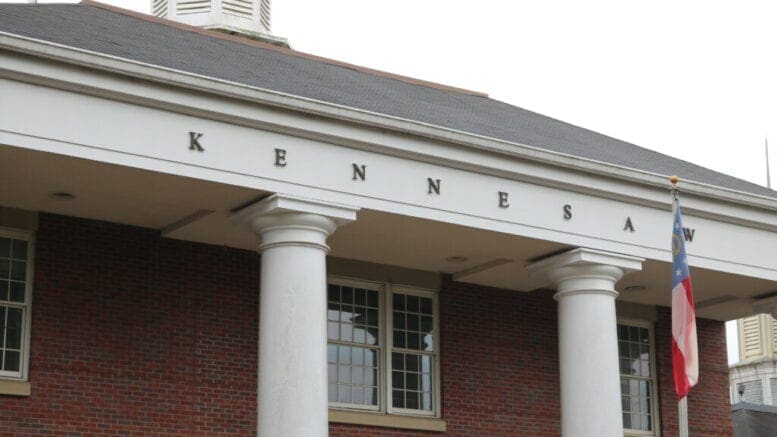The City of Kennesaw has posted their draft budget for 2020-2021 on the city’s website. The budget increase is about one percent, and no millage rate increase is proposed.
The introduction to the budget states:
Property taxes remain the City’s largest source of revenue. A projected increase in property tax revenue is driven by new development and re-valuations by the Cobb County Tax Assessor. In most cases, residents with the Floating Homestead Exemption will not see an increase. Steady growth and conservative budgeting has allowed Kennesaw to keep the same millage rate of 8 mills since FY 08. This budget anticipates the millage rate will remain unchanged for the 14th consecutive year.
The budget totals $25,044,940, and covers FY2021 which runs from October 1, 2020 to September 30, 2021.
The budget document lists some of the following highlights on its introductory page:
- No millage rate increase
- Overall Tax Revenue budgeted at 3% increase
- $832,124 to fund City’s reserve account; reserve previously budgeted in City Manager’s budget (Working Capital Transfer line item), but now shown in a separate reserve budget (department 9000)
- There is no COLA proposed in the FY 21 budget due to the severe negative impact of COVID 19 on FY 20 revenues and unknown impacts on the FY 21 budget
- Salary budgets in all departments include budgeting the cost of employees sellingsick & vacation time as allowed by City policy, based on historic trends
- Increased expected health care costs and retirement contributions ($300,000 and $200,000 respectively) are spread throughout each department
- Sanitation costs remain steady with a 1.2% increase from the service provider
- Increase of overall budget between FY 20 and FY 21 is approximately 1%
The draft budget describes the impact of COVID-19 on the city’s finances as follows:
“The biggest news story of FY 20 was COVID-19 and its impact on public health and the finances of government agencies at all levels. The impact of COVID-19 on City of Kennesaw revenues for FY20 has been significant but not as drastic as cities that rely heavily on hotel/motel sales taxes, income taxes, and sales taxes. The biggest impact was on TAVT, SPLOST, court, liquor tax and revenues generated by Parks & Recreation, the Southern Museum and Smith-Gilbert Gardens.”
